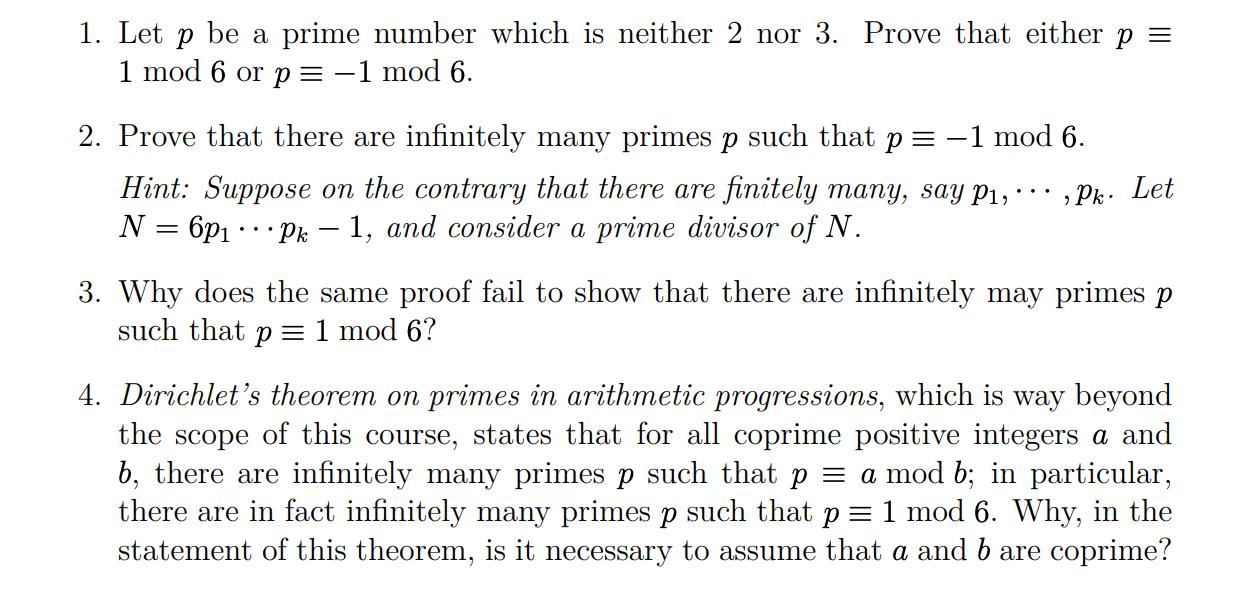Answered step by step
Verified Expert Solution
Question
1 Approved Answer
1. Let p be a prime number which is neither 2 nor 3. Prove that either p = 1 mod 6 or p =

1. Let p be a prime number which is neither 2 nor 3. Prove that either p = 1 mod 6 or p = -1 mod 6. 2. Prove that there are infinitely many primes p such that p = -1 mod 6. Hint: Suppose on the contrary that there are finitely many, say P1, N = 6p Pk1, and consider a prime divisor of N. Pk. Let 3. Why does the same proof fail to show that there are infinitely may primes p such that p = 1 mod 6? 4. Dirichlet's theorem on primes in arithmetic progressions, which is way beyond the scope of this course, states that for all coprime positive integers a and b, there are infinitely many primes p such that p = a mod b; in particular, there are in fact infinitely many primes p such that p = 1 mod 6. Why, in the statement of this theorem, is it necessary to assume that a and b are coprime?
Step by Step Solution
★★★★★
3.52 Rating (169 Votes )
There are 3 Steps involved in it
Step: 1
1 Let p be a prime number which is neither 2 nor 3 Prove that either p 1 mod 6 or p 1 mod 6 Proof Since p is a prime number it is divisible by a singl...
Get Instant Access to Expert-Tailored Solutions
See step-by-step solutions with expert insights and AI powered tools for academic success
Step: 2

Step: 3

Ace Your Homework with AI
Get the answers you need in no time with our AI-driven, step-by-step assistance
Get Started


